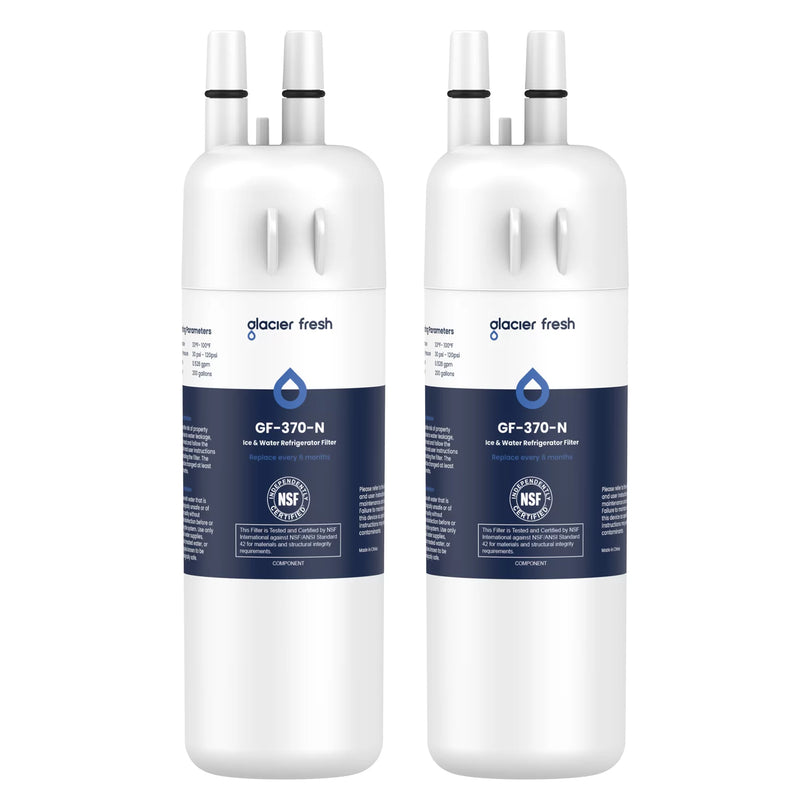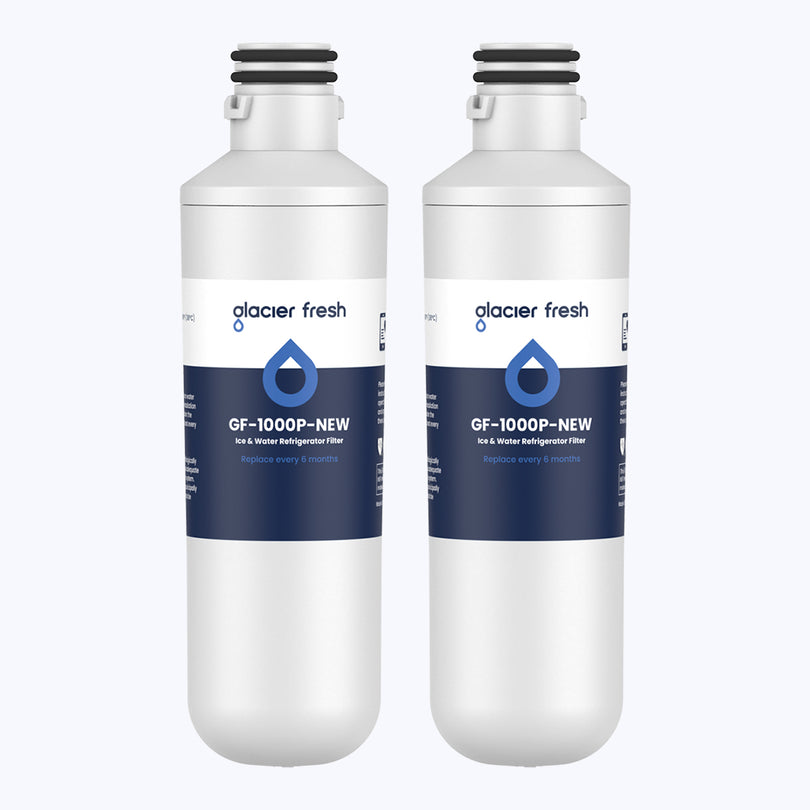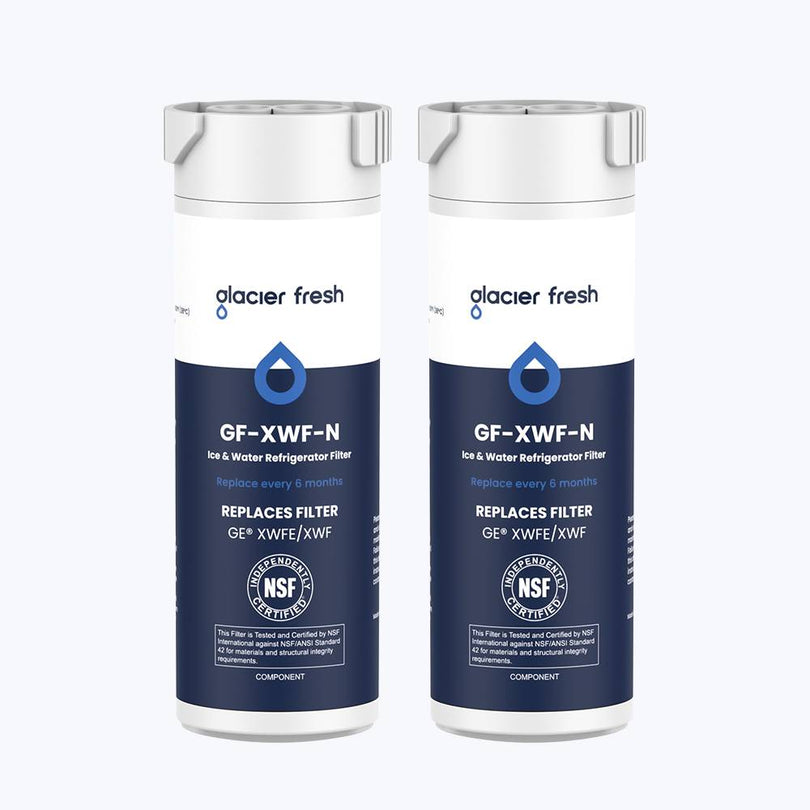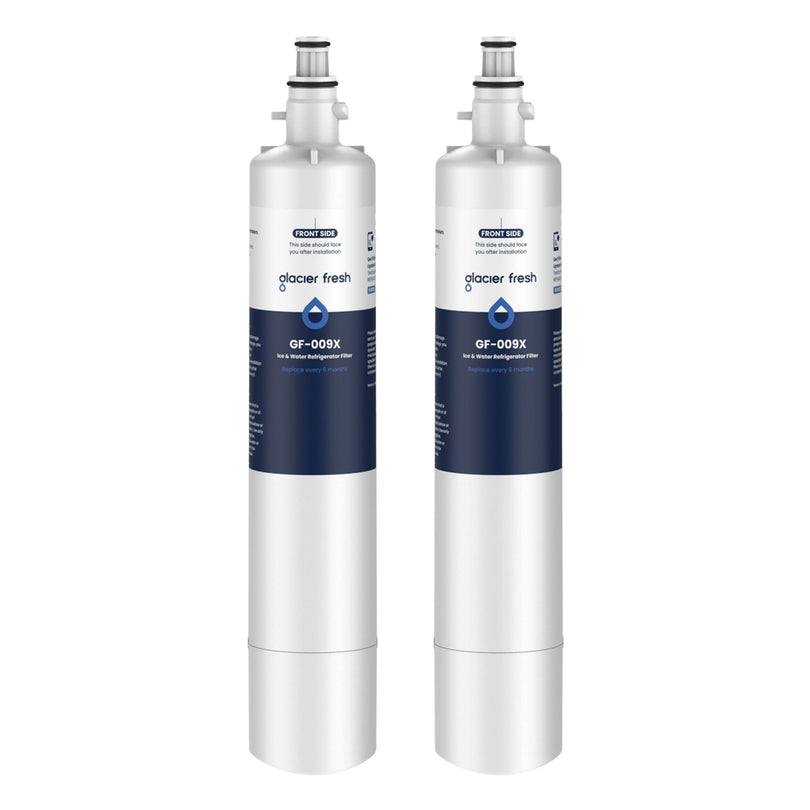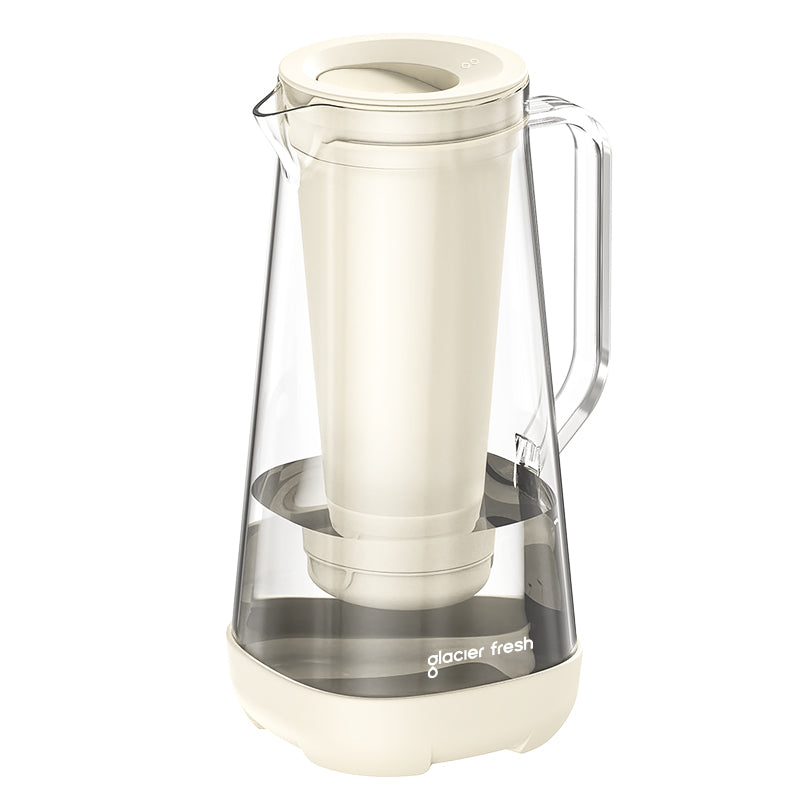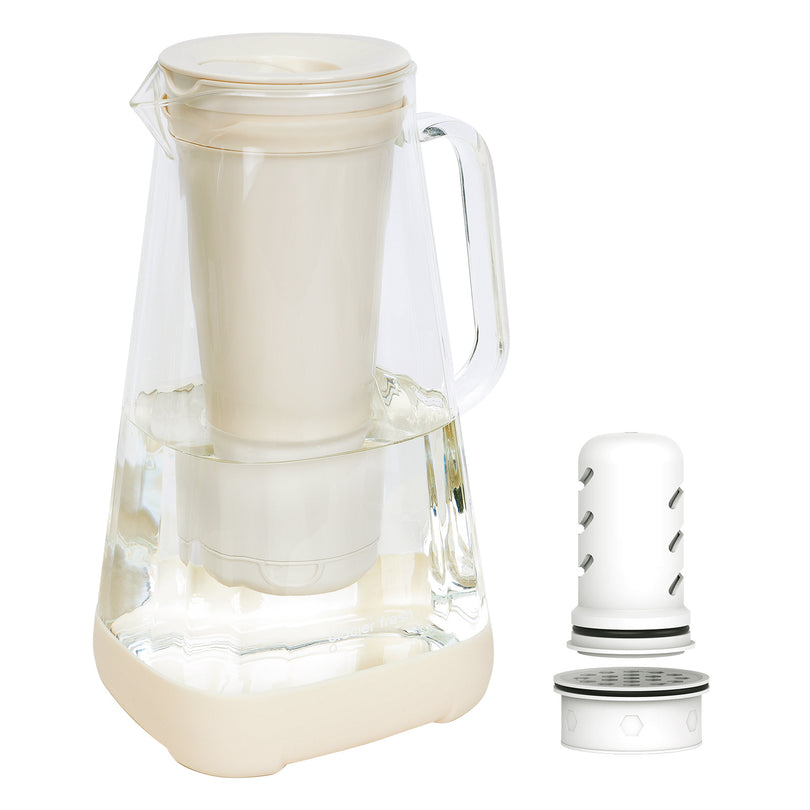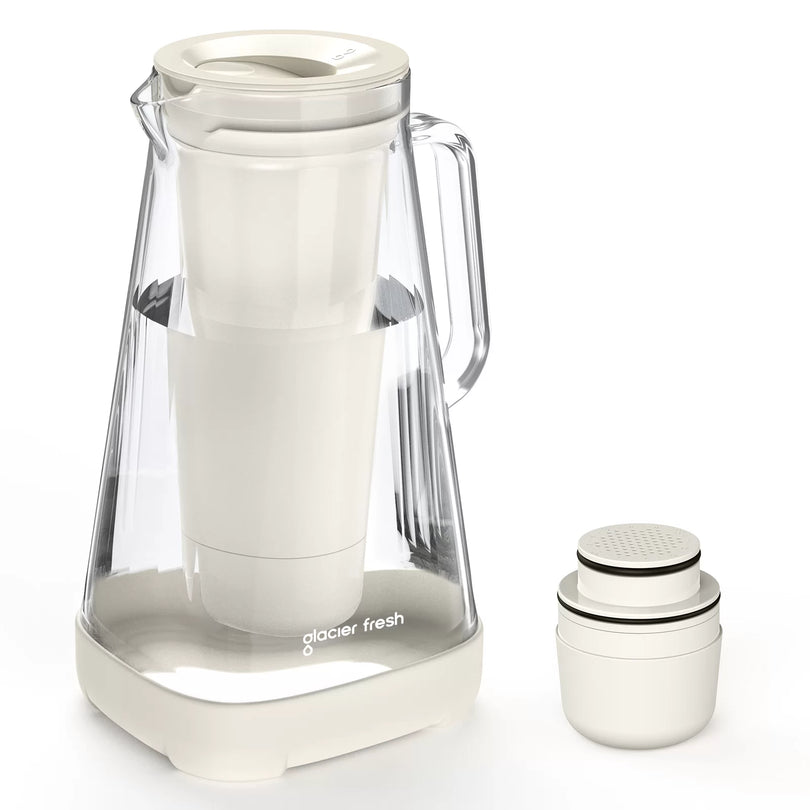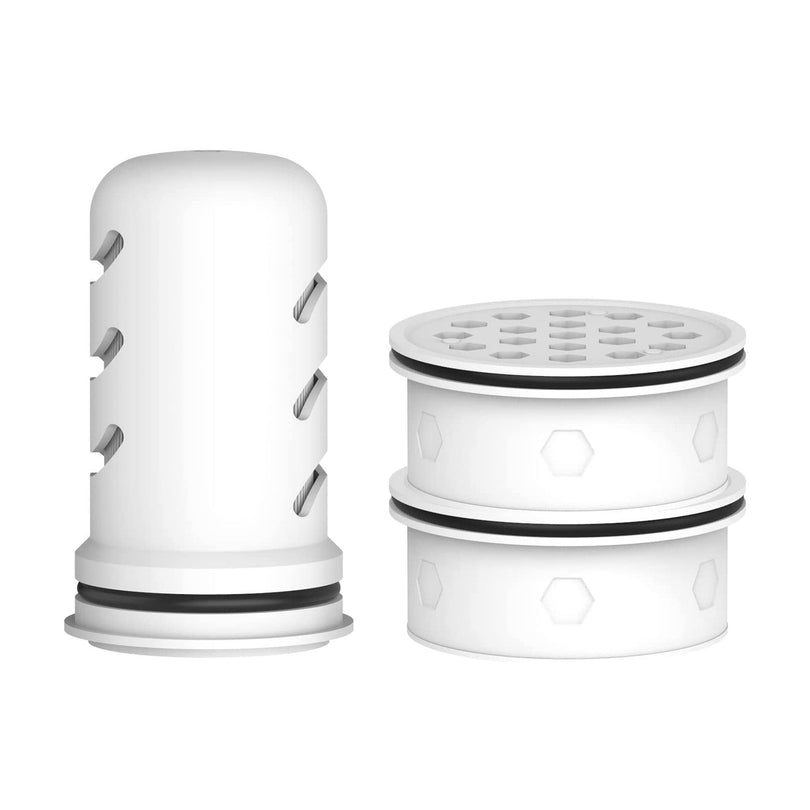Table of Contents:
Was ist Migräne?
Die Rolle der Flüssigkeitszufuhr für die allgemeine Gesundheit
Wie kann Dehydration Migräne auslösen?
Wie kann eine ausreichende Flüssigkeitszufuhr dazu beitragen, die Häufigkeit von Migräne zu verhindern oder zu verringern?
Anzeichen einer Dehydration und wie Sie feststellen können, ob Sie gefährdet sind
Tipps zur Flüssigkeitszufuhr zur Vorbeugung von Migräne
Zusätzliche Strategien zur Migräneprävention
FAQs
Abschluss
Migräne ist nicht nur ein Kopfschmerz – sie ist eine lähmende Erkrankung, die Millionen Menschen weltweit betrifft. Mit Symptomen wie intensiven, pochenden Schmerzen, Übelkeit und erhöhter Licht- und Geräuschempfindlichkeit kann Migräne den Alltag erheblich beeinträchtigen. Obwohl es viele Auslöser für Migräne gibt, wird ein Faktor oft übersehen: die Flüssigkeitszufuhr. Kann mehr Wasser trinken Migräne vorbeugen?
In diesem Beitrag untersuchen wir den faszinierenden Zusammenhang zwischen Flüssigkeitszufuhr und Migräne und geben praktische Tipps, wie Sie durch ausreichende Flüssigkeitszufuhr Ihr Risiko für diese schmerzhaften Episoden verringern können.
Was ist Migräne?

Migräne Migräne ist eine neurologische Erkrankung, die durch intensive, wiederkehrende Kopfschmerzen gekennzeichnet ist, die oft 4 bis 72 Stunden anhalten. Im Gegensatz zu normalen Kopfschmerzen verursacht Migräne typischerweise weitere Symptome wie Übelkeit, Erbrechen und extreme Licht- und Geräuschempfindlichkeit. Migräne kann durch verschiedene Faktoren ausgelöst werden, darunter hormonelle Veränderungen, Stress, bestimmte Nahrungsmittel oder sogar Umweltfaktoren wie Wetteränderungen.
Die genaue Ursache von Migräne ist noch nicht vollständig geklärt. Man geht jedoch davon aus, dass eine abnorme Gehirnaktivität die Blutgefäße und Nervenbahnen des Gehirns beeinträchtigt. Bei vielen Menschen können Migräneattacken durch bestimmte Umweltfaktoren oder innere Faktoren ausgelöst werden – einer dieser Faktoren kann Dehydration sein.
Die Rolle der Flüssigkeitszufuhr für die allgemeine Gesundheit
Die richtige Flüssigkeitszufuhr ist einer der wichtigsten Aspekte für die allgemeine Gesundheit. Unser Körper besteht zu etwa 60 % aus Wasser, und dieses Wasser ist für fast alle Körperfunktionen unerlässlich. Eine ausreichende Flüssigkeitszufuhr ist entscheidend für einen reibungslosen Ablauf – von der Regulierung der Körpertemperatur und der Dämpfung der Gelenke bis hin zur Unterstützung der Verdauung und der Ausscheidung von Giftstoffen.
Wasser spielt auch eine entscheidende Rolle für die Gehirnfunktion . Dehydration, selbst in geringem Maße, kann die Konzentration beeinträchtigen, Müdigkeitsgefühle verstärken und zu Kopfschmerzen führen. Wenn Dehydration diese Probleme verursachen kann, ist es nicht allzu weit hergeholt, dass sie auch zur Entstehung von Migräne beitragen kann.
Wie kann Dehydration Migräne auslösen?

Untersuchungen haben gezeigt, dass Dehydration ein häufiger Auslöser von Kopfschmerzen und Migräne ist. Wenn wir nicht genug Wasser trinken, verringert sich die Blutzirkulation im Körper, wodurch weniger Sauerstoff ins Gehirn gelangt. Dieser Sauerstoffmangel kann die Blutgefäße im Gehirn erweitern, was zu den für Migräne typischen pochenden Schmerzen führen kann.
Dehydration führt auch zu einem Ungleichgewicht der Elektrolyte, die eine entscheidende Rolle für die Nervenfunktion spielen. Ein Elektrolytmangel kann Nervensignale auslösen und Kopfschmerzen verursachen. Darüber hinaus kann Dehydration den Spiegel bestimmter Chemikalien im Gehirn erhöhen, die mit Schmerzen in Verbindung stehen, was Migräne zusätzlich begünstigt.
Wie kann eine ausreichende Flüssigkeitszufuhr dazu beitragen, die Häufigkeit von Migräne zu verhindern oder zu verringern?
Eine ausreichende Flüssigkeitszufuhr kann Migräne zwar nicht vollständig beseitigen, aber die Häufigkeit und Schwere dieser schmerzhaften Episoden verringern. Eine ausreichende Flüssigkeitszufuhr unterstützt die Fähigkeit des Körpers, den Blutfluss zu regulieren, den Elektrolythaushalt aufrechtzuerhalten und sicherzustellen, dass das Gehirn den Sauerstoff und die Nährstoffe erhält, die es für eine optimale Funktion benötigt.
Einige Studien deuten darauf hin, dass das Trinken von Wasser – insbesondere zu Beginn von Kopfschmerzen – die Symptome lindern und einer Verschlimmerung der Migräne vorbeugen kann. Der Schlüssel liegt darin, die Flüssigkeitszufuhr zu einem regelmäßigen Bestandteil Ihrer Routine zu machen, anstatt sich nur auf eine Last-Minute-Lösung zu verlassen.
Darüber hinaus trägt das Trinken von Wasser dazu bei, die Elastizität und Funktion der Blutgefäße zu erhalten und so die Spannung zu reduzieren, die zu Migräneschmerzen beiträgt. Wenn Sie zu Migräne neigen, kann eine aktive Flüssigkeitszufuhr eine der einfachsten und effektivsten Möglichkeiten sein, Ihr Risiko zu senken.
Anzeichen einer Dehydration und wie Sie feststellen können, ob Sie gefährdet sind
Es ist wichtig, die Anzeichen einer Dehydration zu erkennen, bevor sie zu einer Migräne führt. Zu den häufigsten Symptomen einer Dehydration gehören:
- Trockener Mund oder Hals
- Müdigkeit oder Trägheit
- Schwindel oder Benommenheit
- Dunkelgelber Urin
- Kopfschmerzen (insbesondere Spannungskopfschmerzen)
- Trockene Haut
Bestimmte Faktoren können Ihr Dehydrationsrisiko erhöhen, beispielsweise:
- Heißes oder feuchtes Wetter
- Körperliche Aktivität oder Bewegung
- Erkrankungen wie Fieber oder Durchfall
- Hoher Koffeinkonsum
- Alkoholkonsum
- Bestimmte Medikamente (z. B. Diuretika)
Wenn Sie diese Symptome bemerken, ist es ratsam, eine Pause einzulegen und Wasser zu trinken. Versuchen Sie, den ganzen Tag über regelmäßig Wasser zu trinken, auch wenn Sie keinen Durst haben, da Durst ein spätes Anzeichen für Dehydration sein kann .
Tipps zur Flüssigkeitszufuhr zur Vorbeugung von Migräne
Um Migräne durch ausreichende Flüssigkeitszufuhr vorzubeugen, beachten Sie die folgenden Tipps:
- Trinken Sie regelmäßig Wasser : Versuchen Sie, täglich mindestens 8 Tassen Wasser aus einer Wasserfilterkanne zu trinken. Bedenken Sie jedoch, dass der individuelle Bedarf variieren kann. Passen Sie Ihre Wasseraufnahme an Ihr Aktivitätsniveau, das Klima und Ihren Gesundheitszustand an.
- Achten Sie auf Ihre Flüssigkeitszufuhr : Behalten Sie im Auge, wie viel Wasser Sie trinken, und stellen Sie Erinnerungen ein, um Ihre Flüssigkeitszufuhr im Auge zu behalten. Die Verwendung einer wiederverwendbaren Wasserflasche mit Zeitmarkierungen kann dies erleichtern.
- Essen Sie wasserreiche Lebensmittel : Gurken, Wassermelonen, Orangen und Sellerie sind reich an Wasser und können zu Ihrem täglichen Flüssigkeitsbedarf beitragen.
- Elektrolyte ausgleichen : Neben Wasser sollten Sie insbesondere nach körperlicher Aktivität auch Getränke zu sich nehmen, die den Elektrolythaushalt ausgleichen, wie Kokoswasser oder Sportgetränke (vorzugsweise mit wenig Zucker).
- Vermeiden Sie Überwässerung : Es ist zwar wichtig, ausreichend zu trinken, aber zu schnelles Trinken von zu viel Wasser kann auch zu einem Elektrolytungleichgewicht führen. Achten Sie auf eine gleichmäßige, konstante Wasseraufnahme über den Tag verteilt.
Zusätzliche Strategien zur Migräneprävention
Eine ausreichende Flüssigkeitszufuhr allein reicht möglicherweise nicht aus, um Migräne bei jedem Menschen vorzubeugen, sollte aber Teil eines umfassenden Migräne-Präventionsplans sein. Weitere Strategien sind:
- Auslöser erkennen und vermeiden : Führen Sie ein Migränetagebuch, um potenzielle Auslöser durch Nahrungsmittel, Umwelteinflüsse oder Lebensstil zu erfassen.
- Halten Sie einen regelmäßigen Schlafrhythmus ein : Schlechte oder unregelmäßige Schlafmuster können Migräne auslösen.
- Üben Sie Stressbewältigung : Techniken wie Meditation, tiefes Atmen und Yoga können helfen, Stress, einen häufigen Migräneauslöser, abzubauen.
- Achten Sie auf Ihre Ernährung : Bestimmte Nahrungsmittel (z. B. gereifter Käse, Alkohol und verarbeitetes Fleisch) sind bei manchen Menschen bekannte Migräneauslöser.
FAQs
Gibt es bestimmte Wasserarten, die bei Migräne helfen (z. B. Mineralwasser)?
Es gibt kein bestimmtes Wasser, das nachweislich besser hilft als andere, aber Mineralwasser mit zugesetzten Elektrolyten kann einen zusätzlichen Nutzen bieten.
Kann Wasser Medikamente gegen Migräne ersetzen?
Eine ausreichende Flüssigkeitszufuhr kann zwar die Häufigkeit und Schwere von Migräneanfällen verringern, ist aber kein Ersatz für verschreibungspflichtige Medikamente. Konsultieren Sie immer einen Arzt, um eine angemessene Migränebehandlung zu erhalten.
Abschluss
Auch wenn ausreichende Flüssigkeitszufuhr nicht für jeden Migränepatienten das Allheilmittel ist, ist sie doch eine einfache, natürliche und wichtige Strategie zur Vorbeugung. Ausreichend Wasser zu trinken unterstützt die Blutregulierung, den Elektrolythaushalt und die Gehirnfunktion – all das kann die Wahrscheinlichkeit eines Migräneanfalls verringern. Wenn Sie häufig unter Migräne leiden, kann eine ausreichende Flüssigkeitszufuhr in Ihren Alltag die Häufigkeit und Intensität Ihrer Migräne spürbar verbessern. Unterschätzen Sie nicht die Wirkung von Wasser – Ihr Gehirn wird es Ihnen danken! Folgen Sie Glacier Fresh für weitere Tipps zur ausreichenden Flüssigkeitszufuhr.

